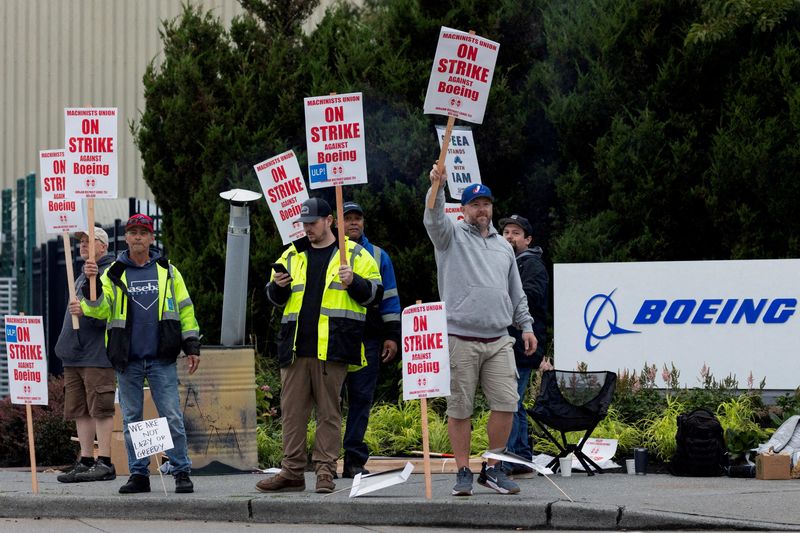By Allison Lampert and David Shepardson
(Reuters) – Boeing and its largest union have announced that contract negotiations will resume on October 7th in an effort to end a strike by approximately 33,000 of the company’s U.S. West Coast factory workers.
The U.S. planemaker and the International Association of Machinists and Aerospace Workers have faced challenges in finding common ground, failing to reach an agreement on key issues even with the assistance of federal mediators.
“A resolution with the IAM is a top priority for me, and our team is prepared to restart mediated discussions this Monday,” said Boeing CEO Kelly Ortberg on Friday.
Ending the strike with the IAM is crucial for Boeing as it grapples with increasing debt, cash flow issues, and the risk of losing its investment grade rating.
The IAM’s district 751, responsible for the negotiations, has confirmed that talks with Boeing will resume on Monday with the support of federal mediators.
“This meeting presents another important opportunity to advocate for the interests of our members,” stated the union.
The ongoing negotiations have garnered attention from the Biden administration, with acting U.S. Labor Secretary Julie Su and her team staying engaged with both parties, according to a spokesperson.
The strike has resulted in the suspension of production for Boeing’s 777, 767, and 737 MAX jet, impacting a key revenue stream for the company during a challenging period for its defense business.
Boeing’s first strike since 2008 comes amidst a turbulent year that began with a January incident involving a door panel detachment on a new 737 MAX jet during a flight.
Boeing recently presented a “best and final” pay offer, including a 30% wage increase over four years, reinstatement of a performance bonus, enhanced retirement benefits, and a doubled ratification bonus of $6,000. However, the union leadership opted not to proceed with a vote.
An earlier tentative agreement offering a 25% raise over four years and a commitment to manufacture a new plane in the Seattle area was rejected by over 90% of workers in September.
Boeing’s shares saw a 3% increase in value on Friday.

Boeing began implementing temporary furloughs for tens of thousands of U.S. employees last month, requiring one week off every four weeks as part of cash conservation efforts.
“I want to express my gratitude for everyone’s dedication to our cash-saving measures,” Ortberg remarked, commending employees for their resilience during this challenging period, especially as many colleagues are taking temporary furloughs.

